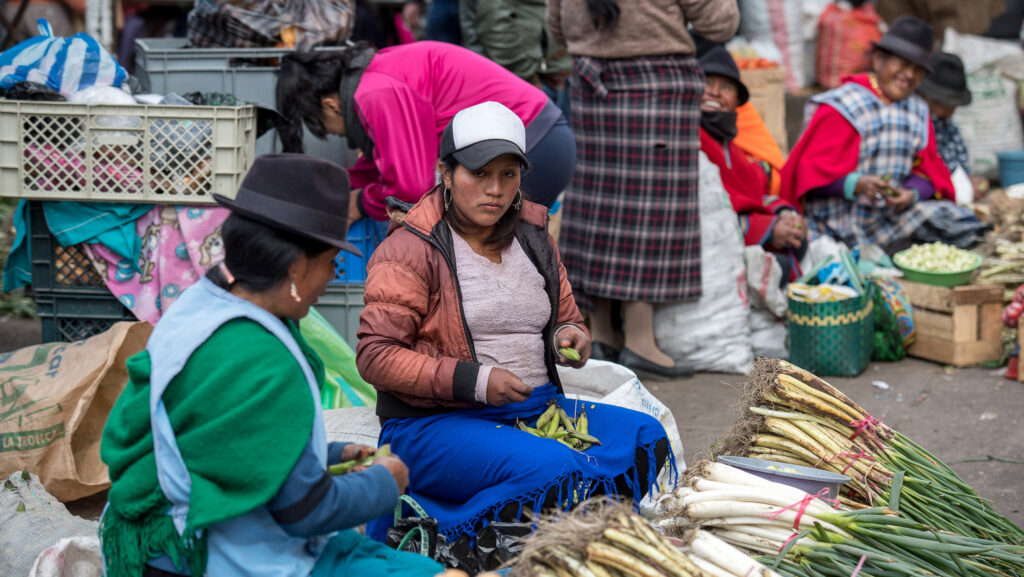Neve Dawson
Ecuadorian President Daniel Noboa has declared a 60-day state of emergency in response to a series of violent attacks and jail riots spread across the country.
As a result of a series of coordinated attacks across the country at least 10 people have been reported dead.
The government says the violence is a reaction to President Noboa’s plan to build a new high-security prison for gang leaders.
What’s Happening In Ecuador?
Violence was sparked across the country following the escape of a notorious gangster Adolfo Macías Villamar, known as Fito, from his prison cell in Guayaquil. His escape occurred ahead of a planned internal prison transfer for Macías.
A series of reports estimate that over 150 prison staff are being held hostage by inmates in prisons across the country.
In the city of Guayaquil, masked gunmen stormed a television studio during a live broadcast, threatening the presenter and forcing the crew to lie on the floor.
The relationship between the television attack and the escape of Macías is currently unknown.
BREAKING: Gunmen storm Ecuador television studiohttps://t.co/azkpcIxJ3h
— The Spectator Index (@spectatorindex) January 9, 2024
Ecuadorian Government Reaction
President Noboa has ordered that criminal gangs be “neutralised” and said that an “internal armed conflict” existed within the country.
Esteban Torres Cobo, a vice minister in Noboa’s government, warned that the war on armed gangs could result in casualties across the country. He told BBC’s Newshour programme: “It’s going to be bloody but this is the change we need in order to have a better future, we cannot be postponing this decision throughout the years, we have to take decision now.”
Ecuadorian police are reported to have made 70 arrests since Monday.
The streets of Ecuadors capital, Quito, appear empty, as soldiers and tank patrols deployed on the streets of Ecuador seek to restore order.
School lessons have been moved online, while businesses close or seek to promote working from home. A nationwide curfew has been installed from 23:00-05:00 every night.
The United Nations has called for all emergency measures taken to address the violence to be proportionate and “limited to the requirements of the security situation.”
#Ecuador: @UNHumanRights calls for all emergency measures addressing the violence to be proportionate and limited to the requirements of the security situation.
"Any restrictions must respect the principles of legality, necessity, proportionality and non-discrimination." pic.twitter.com/L88jWccJ8L
— United Nations Geneva (@UNGeneva) January 12, 2024
History Of Gang Violence in Ecuador
In recent years, violent crime has increased across Ecuador, with gang violence and social influence growing. Between 2018 and 2023, homicide rates in Ecuador rose six-fold, to 40 murders per 100,000.
Situated between Columbia and Peru, the two largest producers of cocaine in the world, transnational crime groups have been able to expand throughout Ecuador.
In February 2021, simultaneous fights erupted between rival gang factions across four different jails, killing 79 inmates.
The most recent attacks, in which rival gangs appear to have banded together, have targeted hospitals, universities, and public services.
Via the Ecuadorian Presidential Twitter (previously known as X) account, President Noboa stated: “With firmness and conviction, we will return peace to all Ecuadorians.”
https://twitter.com/Presidencia_Ec/status/1745223680844616115
The attacks on national institutions and civilians is being seen as “violent lobbying” against punitive proposals designed to target Ecuadors gang communities.
In August 2023, presidential candidate Fernando Villavicencio was assassinated while campaigning in Quito. Villavicencio, who had previously received several death threats, had campaigned to tackle violence, crime and corruption in Ecuador.
President Noboa, 36, was elected in the wake of Villavicencio’s assassination. While he currently has majority public support, the new President’s campaign against gangs has faced criticism for it’s long-term unsustainability.
The escape of gang leader Adolfo Macías represents a huge blow to President Noboa, who has served only seven weeks in the position.
Macías, the man at the centre of the chaos, remains unlocated.
READ NEXT:
-
BRAZIL EXPERIENCES MAJOR HISTORIC DROUGHT
-
FRENCH RIOTS: WHAT ARE THE UNDERLYING CAUSES?
-
SPREADING AWARENESS ON FEMICIDES IN MEXICO
Featured image courtesy of Frans Peeters via Flickr. No changes were made to this image. Image license found here.

